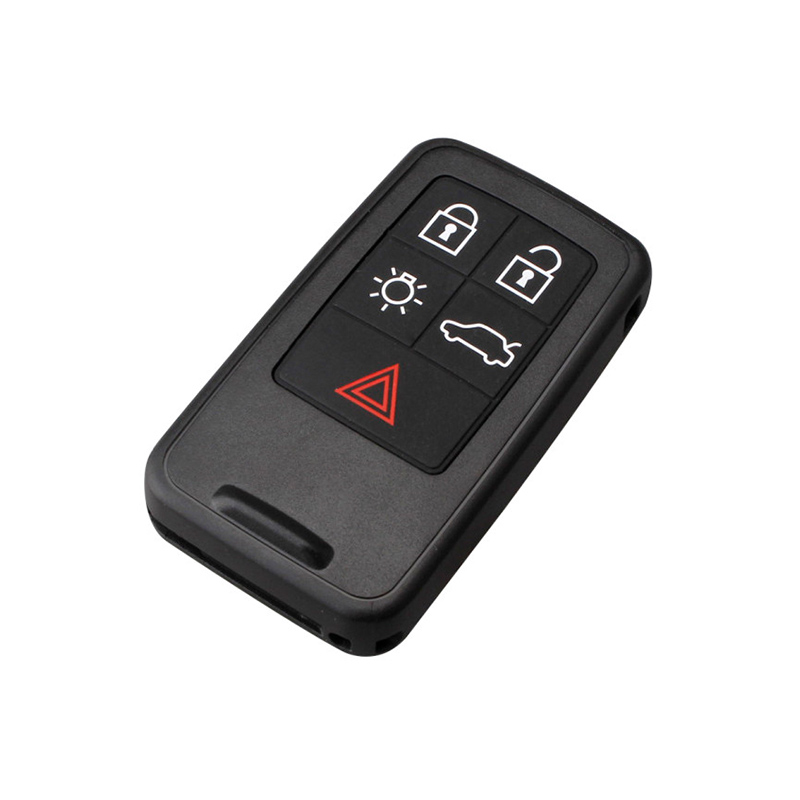In the rapidly evolving world of automotive technology, the smart key has emerged as a game-changing innovation. Designed for convenience and security, smart keys are vastly different from traditional car keys. Here's a closer look at what a smart key is, how it works, and how it compares to its conventional counterpart.

What is a Smart Key?
A smart key is an advanced electronic key system that enables a keyless entry and start functionality for vehicles. Introduced in the late 1990s and now common in modern cars, a smart key uses proximity sensors and radio frequency identification (RFID) technology to communicate with the vehicle.
Key Features of a Smart Key:
Keyless Entry: Automatically unlocks the car doors when the key fob is within a certain range.
Push-Button Start: Allows the engine to start with a push of a button, as long as the key is inside the vehicle.
Enhanced Security: Uses encrypted signals to prevent unauthorized access or key duplication.
Additional Functions: Many smart keys include features like remote start, trunk opening, and panic alarms.
How Does a Smart Key Work?
A smart key relies on a system of sensors and encrypted signals. Here’s how it typically functions:
Proximity Detection: When the smart key comes within a specific range of the vehicle, it sends a signal to the car’s receiver.
Authentication: The vehicle verifies the key’s encrypted signal to ensure it matches its internal coding.
Action Activation: Once authenticated, the vehicle unlocks doors or enables the engine start function.
Smart keys often work with short-range wireless communication technologies, such as low-frequency RFID or Bluetooth.
What is a Traditional Car Key?
A traditional car key is a mechanical key used to manually unlock and start a vehicle. While older vehicles relied on simple metal keys, more recent traditional keys often incorporate electronic components for added security, such as:
Mechanical Blade: Used to physically unlock the doors and ignition.
Transponder Chip: Embedded in some traditional keys to prevent unauthorized starting of the vehicle.
Though functional and reliable, traditional car keys require manual interaction, such as inserting the key into the ignition and turning it to start the engine.
Key Differences Between Smart Keys and Traditional Car Keys
| Feature | Smart Key | Traditional Car Key |
|---|
| Entry Method | Keyless entry via proximity sensors | Manual unlocking with a mechanical blade |
| Starting the Engine | Push-button start | Insert and turn the key in the ignition |
| Security | High-tech encryption; harder to duplicate | Mechanical keys easier to copy; transponders offer moderate security |
| Convenience | No need to take the key out of your pocket | Requires physical handling of the key |
| Additional Features | Remote start, trunk opening, panic button | Basic functionality (unlocking and starting) |
| Cost | Higher initial and replacement costs | Lower costs for replacement and duplication |
Advantages of Smart Keys
Enhanced Security: Smart keys reduce the risk of theft with their encrypted signals and anti-theft technology.
Convenience: Eliminates the need to search for keys, allowing for seamless entry and starting.
Advanced Features: Offers added functionality like remote start and customizable vehicle settings.
Disadvantages of Smart Keys
Higher Costs: Replacing or repairing a smart key can be expensive, often requiring dealership assistance.
Battery Dependency: Smart keys rely on batteries, which need periodic replacement to avoid malfunctions.
Signal Interference: Environmental factors or signal jamming attempts can sometimes disrupt the smart key’s functionality.
Advantages of Traditional Car Keys
Simplicity: Straightforward operation with no dependence on electronic systems.
Cost-Effective: More affordable to replace and repair.
Durability: Mechanical keys are less prone to failure caused by electronic malfunctions.
Which is Better?
The choice between a smart key and a traditional car key depends on your priorities:
If you value convenience, security, and technology, a smart key is the way to go.
If you prefer simplicity, reliability, and cost-effectiveness, a traditional car key might suit you better.
Conclusion
Smart keys represent a significant evolution in car key technology, offering unmatched convenience and enhanced security. While they differ considerably from traditional car keys in terms of operation and features, each type has its advantages. Whether you opt for the cutting-edge technology of a smart key or the tried-and-true reliability of a traditional key, understanding their differences can help you make an informed decision for your vehicle.

 Englishen
Englishen











 No.991 Xingxiu Road,Taiwanese Investment Zone, Quanzhou, Fujian Province,P.R.China
No.991 Xingxiu Road,Taiwanese Investment Zone, Quanzhou, Fujian Province,P.R.China +86 13960286508
+86 13960286508
 3D Reality Showroom
3D Reality Showroom
